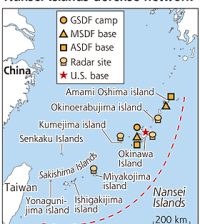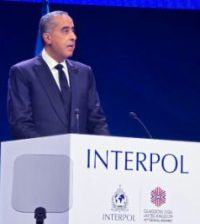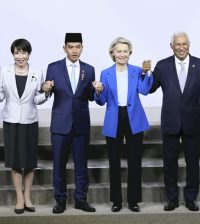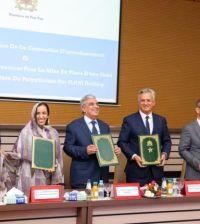- Washington “follows with interest” Morocco’s openness onto Africa (John Kerry)Posted 12 years ago
- The trial of South African Paralympic champion Oscar Pistorius opened in Pretoria on Monday.Posted 12 years ago
- USA welcomes efforts of King Mohammed VI in MaliPosted 12 years ago
- Egypt’s population reaches 94 millionPosted 12 years ago
- Mugabe celebrates his 90thPosted 12 years ago
- Moroccan Monarch to Build a Perinatal Clinic in BamakoPosted 12 years ago
- King Mohammed VI handed a donation of bovine semen for the benefit of Malian breeders.Posted 12 years ago
- Moroccan King’s strategic tour to Africa: Strengthening the will of pan African Solidarity and stimulating the south-south cooperation mechanisms over the continentPosted 13 years ago
- Senior al-Qaida leader killed in AlgeriaPosted 13 years ago
- Libya: The trial of former Prime Minister al-Baghdadi AliPosted 13 years ago
Egypt’s Khaled el-Anani poised to become UNESCO’s next Director-General
UNESCO looks poised to appoint its first ever Arab director-general, following the nomination of Egyptian academic and former minister Khaled el-Anani by the organisation’s executive board in Paris.
If, as expected, the general conference in Uzbekistan confirms the decision next month, the 54-year-old Egyptologist will take charge of a UN agency once again grappling with questions of political relevance and financial survival — not least after Washington’s abrupt decision to withdraw its membership and funding.
El-Anani, a former tourism and antiquities minister known for championing Egypt’s archaeological heritage, defeated his only rival, Congolese economist Firmin Edouard Matoko, in Monday’s vote. The board’s recommendation now goes to the 194-member General Conference for formal endorsement.
For Egypt and the wider Arab world, the nomination carries symbolic weight. Cairo hailed it as a “historic achievement,” underscoring decades of Arab frustration at never having held the top UNESCO job. Both the Arab League and African Union had endorsed El-Anani’s bid.
A scholar turned minister, El-Anani rose from tour guide to professor of Egyptology, earning a PhD in France before joining government in 2016. As minister, he oversaw ambitious cultural projects, including the National Museum of Egyptian Civilisation and the restoration of Cairo’s Jewish Temple, part of efforts to revive Egypt’s tourism sector battered by unrest and pandemic lockdowns.
Should he assume office, El-Anani will inherit a complex brief. UNESCO’s remit spans the safeguarding of World Heritage sites, the promotion of education and science, and programmes to combat antisemitism and hate speech. Yet it has long faced allegations of waste and political bias — grievances that fuelled the US exit during the Trump administration after the body admitted Palestine as a member in 2011.
Supporters of continued American engagement warn that Washington’s retreat cedes greater influence to China, which has quietly expanded its role within the UN system.
El-Anani, who lacks previous UN experience, insists that could be an advantage: “It allows me to reform with fresh eyes,” he told Egyptian media, pledging to “build bridges” and “encourage the United States to return.”
Matoko, a 40-year UNESCO veteran with experience from post-genocide Rwanda to peace efforts in El Salvador, had argued for a more technical, education-centred approach. Both men, however, promised to attract private-sector funding to offset the agency’s deepening deficit.
With wars in Gaza and Ukraine exposing fresh rifts across the 80-year-old UN system, UNESCO’s leadership transition comes at a time when multilateralism itself is under strain. The test for El-Anani — if confirmed — will be whether he can restore credibility and cohesion to one of the UN’s oldest and most culturally visible institutions.




